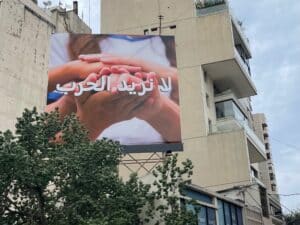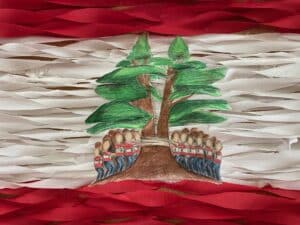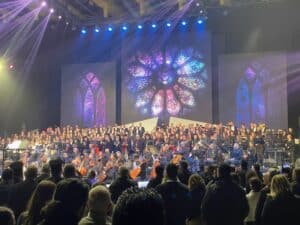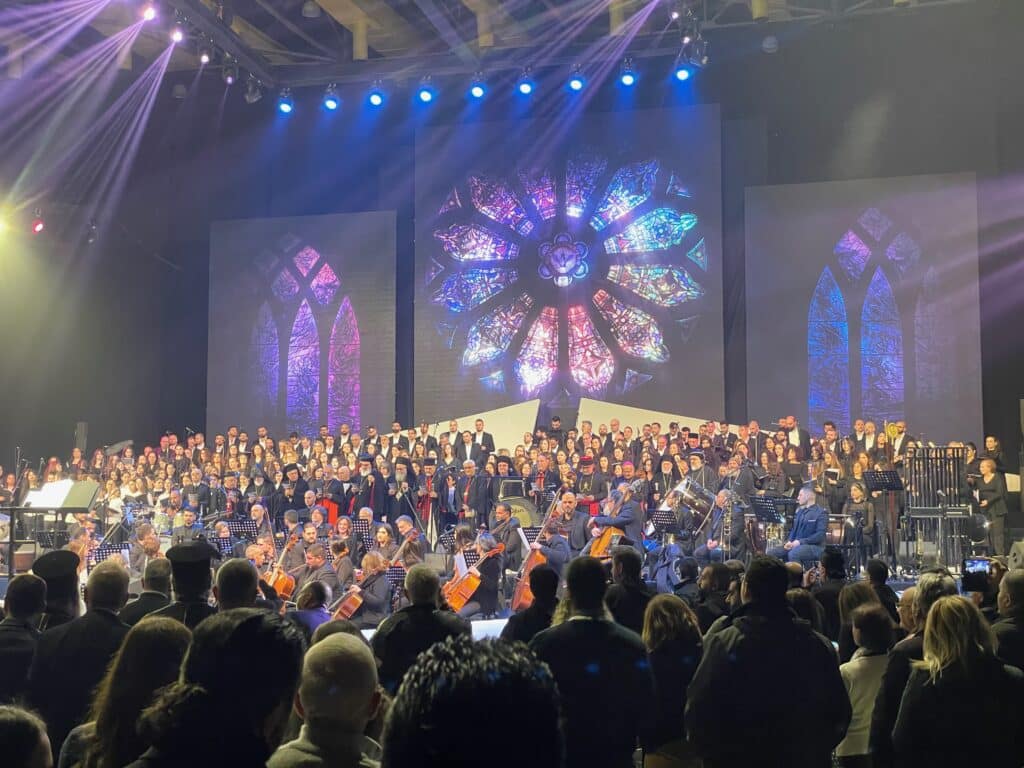For the World So Loved
Written by Nishan Bakalian, serving in Lebanon with the Union of Armenian Evangelical Churches.
The most enduring and endearing Bible verse, especially for Protestants (here in the Middle East called “Evangelicals”), is the declaration of John the Evangelist: “For God so loved the world that he gave his only Son, that whoever believes in him should not perish but have eternal life” (3:16). It is a statement full of grace and truth, like Christ the Savior in whom we believe. Yet if God so loves the world, just what is it that the world so dearly loves?

Casting merely a casual glance at today’s world will show but one answer: war. The world so loves war that it will spare no occasion to wage it. Despite the rhetoric of negotiations, countries will choose force of arms to achieve their aims, either directly or through their agents. And, most obscenely, they will clothe such actions in Orwellian Newspeak terms, calling offensive military campaigns “defense”, collective punishment “targeted actions”, and genocidal atrocities “unfortunate incidents”. The powers of this world, seen and unseen, will condemn the violent reactions of indigenous populations as racist hate crimes; they will sanction the brutality of their allies while loudly decrying the desperate acts of repressed peoples.
Is this the world that God loves? In a sense, yes, but in another sense, certainly not. God loves us – “the world” – despite what we do, not because of it. We are witnessing in “real time” what humanity, left to its own designs, makes of the world, or of national or ethnic identity, or of religious devotion, or of individual human existence. In practice, our “fallen world”, in the Biblical sense, considers one people group more valuable than another people group, and will support such claims with lies repeated frequently enough to cause observers to mistake them for the truth. God loves this world and with that love will transform it from its sorry, sinful state to that which at the beginning was called “good”.

This is the world in which we live and serve as the church, even the church in the Middle East. The challenges to human and material resources are formidable, yet the church is the body that is committed to trusting and serving the living God, entering this world’s misery with compassion and a message of repentance and hope. Lebanon, which has been left simmering on some back burner somewhere, continues to worry about what additional shocks it will have to endure, whether from human-made disasters or natural catastrophes, whether from corruption within or regional machinations without. Its economy continues to fall, after an almost complete dollarization of goods and services, and the hyperinflation of the Lebanese pound that degraded the ability for families to put food on their tables has continued apace, with price tags in dollars now also inflating for no good reason.

What can individuals, organizations, or even the church do in a world so bent on self-enrichment and other-destruction? In November a bulletin board at an Armenian Evangelical school told a story and challenged students to consider how they could exert themselves to keep the national symbol of Lebanon, a cedar tree, along with the country’s natural riches, from shattering. Starting in December billboards symbolizing harmony and mutual support appeared, declaring, “We do not want war.” At the beginning of the New Year 10,000 Christians and ecumenical heads of churches, sponsored by the Middle East Council of Churches, assembled in a Beirut venue for a prayer concert during the annual “Week of Prayer for Christian Unity”, bringing a moment of tranquility and healing to a tormented region. And in January the Union of the Armenian Evangelical Churches in the Near East gathered seventy people active in ministry in its churches and schools for a seminar to provide guidance in planning meaningful and relevant worship for young and old.
Perhaps none of this will convince a world in love with war to turn from its evil ways, believe in God’s good news en masse, and be saved. But we believe that such drops of hope will fall on even a few willing hearts and cause them to turn from sin and sprout with new life. Whether it is revealed tomorrow or the next day, our trust is in the One who was willing to pay such a great price to love this world, and we are certain that Christ Jesus himself will care for those tender shoots and cover the earth with his verdant gospel.
Rev. Nishan Bakalian
Nishan and Maria Bakalian serve with the Union of Armenian Evangelical Churches in Lebanon. Their appointments are made possible by gifts to the Disciples Mission Fund, Our Church’s Wider Mission, and your special gifts.
Make a gift that supports the work of Nishan and Maria Bakalian

